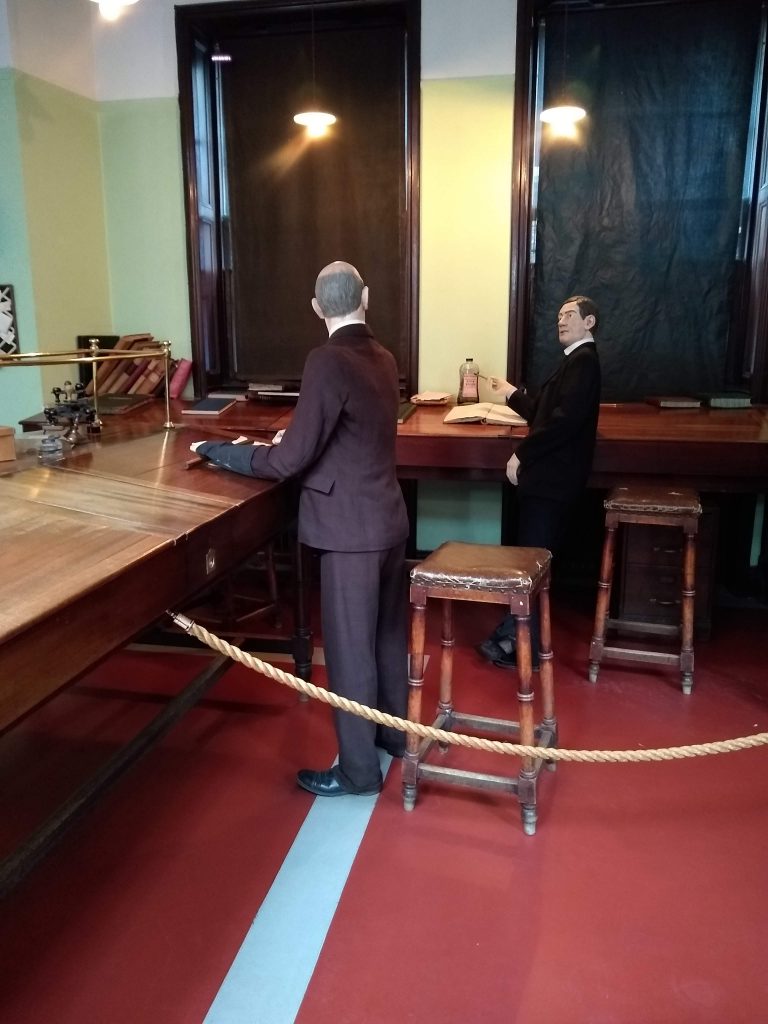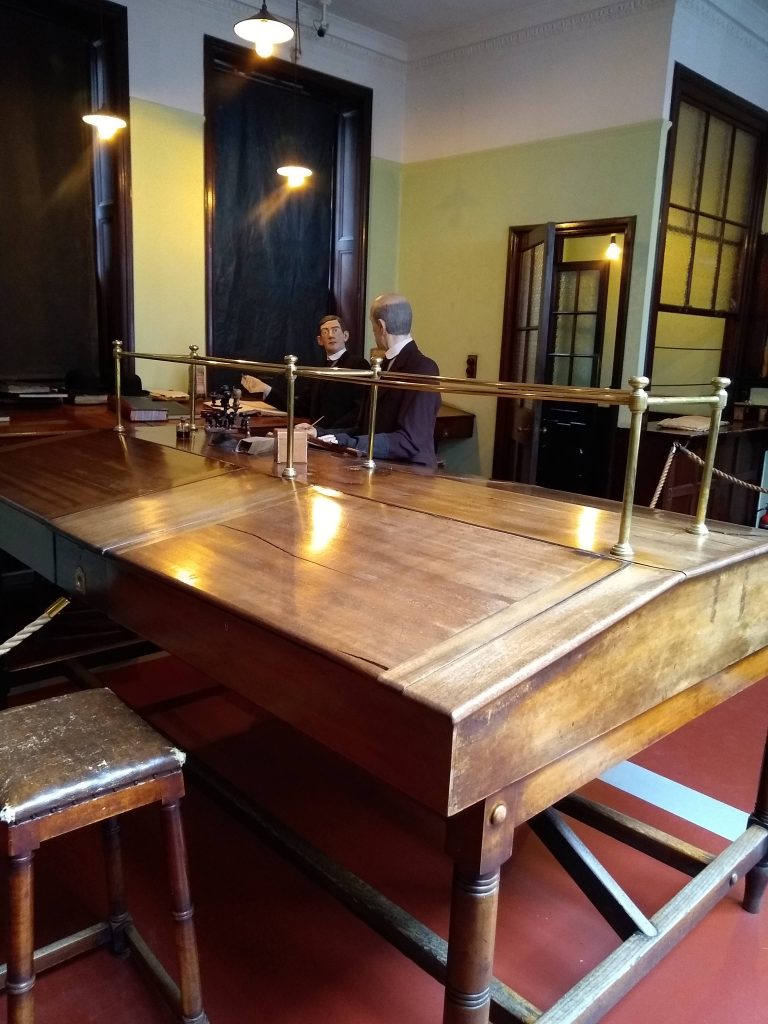While spring progresses without me outside, I’m (begrudgingly) stuck inside. So I thought I’d relive bygone days by looking at old photos.
I rediscovered some gems from the Verdant Works museum in Dundee, Scotland. From 1833 to 1889, this textile mill spun flax, and later jute. The tough jute fibers were perfect for making ropes, sails, linoleum backing, and sandbags. Course canvas made the classic covering for pioneers’ wagons, and burlap bags were ubiquitous as packaging.
Even though I had never heard of jute before February, and I have no particular interest in factories, the museum was strangely fascinating. The part with specific relevance to me, as a non-sitting white-collar worker, was the front office. It was very well preserved, and dated from the early 1900s.

A sign explained that the clerks employed in the office were expected to work standing up. The stools could be used to rest against briefly if they got tired.
I quite enjoyed the hokey audio narration of the two men talking together, which was delivered in a borderline-incomprehensible (to me) Scottish accent. One man complained about the expectation to stand all day, while the other shushed him. Didn’t he realize that this expectation was keeping them both employed? If they eased the physical requirements of the job, the clerks would soon be replaced with women (cheap labor).
Of course I found this hilarious. If I lived in 1900 Dundee, I suppose I’d be a qualified clerk. Or at least I could be if they stopped using those heavy paper ledgers and switched to Excel. (Also, I require regular access to blueberry tea and air conditioning in my work environment.)

In case you were wondering, the worst jobs in the factory went to the nine-year-old boys, who had to dive under the dusty, greasy, very fast machines and clean them while they were still running.
On second thought, being stuck inside the house and complaining about how my feet hurt sounds pretty good.
